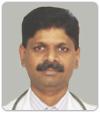What Is The Best Treatment Option For Partial Articular Surface Tearing Of The Supraspinatus Tendon?

 Fri, 10 Jan 2014
Answered on
Fri, 10 Jan 2014
Answered on
 Wed, 29 Jan 2014
Last reviewed on
Wed, 29 Jan 2014
Last reviewed on
Answered by

Dr. K. Naga Ravi Prasad
Orthopaedic Surgeon, Joint Replacement
Practicing since :1996
Answered : 2148 Questions
Get personalised answers from verified doctor in minutes across 80+ specialties



